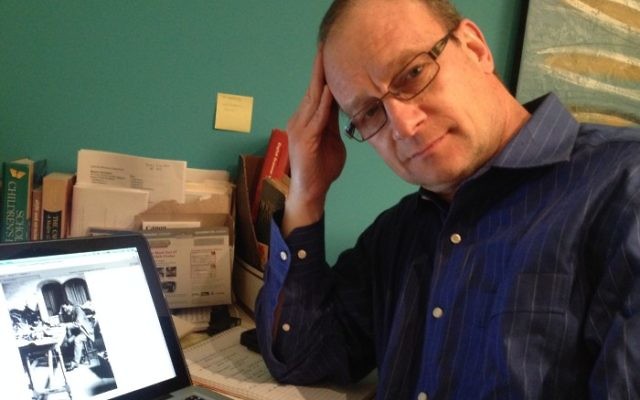Voting: It’s a Jewish Thing
Whether you call it a mitzvah, a moral obligation, or doing your civic duty — vote.
Dave Schechter is a veteran journalist whose career includes writing and producing reports from Israel and elsewhere in the Middle East.
A friend from New York called a couple of weeks ago, asking for my thoughts on the election, particularly the marquee races in Georgia for governor and U.S. Senate.
I gave him an overview of the political climate in the state, with the usual caveats about the uncertainty of turnout, the possibility of voters splitting their choices between Democratic and Republican candidates, the potential for Libertarian candidates to force runoffs, and a reminder that 35 years living in Georgia has not equipped me with any particular clairvoyance.
In my first professional lifetime, as a newspaper reporter, I would make friendly, low-stakes wagers on election results with the city manager of the municipality I covered. I would like to say otherwise, but I remember paying out more than I took in.
Every election cycle, pundits and politicians tell voters that “this is the most important election in our lifetimes” and that “the future of the nation for decades to come is at stake.”
And they are right. Every election is the most important election…since the last one. The future of the nation and the state are at stake and, yet a significant chunk of the populace shrugs its shoulders.
In the 2020 general election, 66.8 percent of eligible voters nationally cast ballots, the highest turnout since 1992 and up from 61.4 percent in 2016. In Georgia, turnout in 2020 was 66.2 percent. That means one-third of eligible voters, nationally and in Georgia, did not vote.
In the last mid-term election, in 2018, national turnout of 53.4 percent was the highest since the U.S. Census Bureau began collecting turnout statistics in 1978. Georgia’s nearly 61 percent turnout rate in 2018 still meant that two out of every five eligible voters stayed home.
Those who abstain would seem to ignore or reject the admonition by Rabbi Hillel in the Pirkei Avot (Ethics of the Fathers): “Do not separate yourself from the community.”
Never mind telling these folks, “If you don’t vote, don’t complain.” Those who do not vote will still complain, choosing to exercise their right to sound off more than their right to cast a ballot.
Jews are known to exercise this franchise at a greater rate than the population at large.
In Deuteronomy, we read that, after leaving Egypt, Moses told his flock: “God shall choose; one from among thy brethren shalt thou set king over thee.” In 2022, the governed in Georgia will choose their governor (and a U.S. senator and representatives, and state legislators, and on down the line).
Think of voting as upholding a social contract, providing a service for the public good, while serving yourself. As the Pirkei Avot teaches: “It is not your duty to finish the work, but neither are you at liberty to neglect it.”
One view of that duty is drawn from the Aleinu prayer — tikkun olam, “when all the brokenness in our world is repaired.” Thus, voting becomes a means of fulfilling this admonition from the Book of Isaiah: “Learn to do good. Devote yourselves to justice. Aid the wronged. Uphold the rights of the orphan. Defend the cause of the widow.”
Then there are the words of the Babylonian Talmud: “One may only appoint a leader over a community if he consults with the community and they agree to the appointment.” That is why we have elections.
While reading on this subject, I came across a story about the Chazon Ish, a 20th century Israeli rabbi. On Election Day, the Chazon Ish encountered a fellow Jew who had not voted because “I don’t have the three Israeli pounds to pay the poll tax.”
The Chazon Ish asked: “Do you own a pair of tefillin?”
“Of course,” was the reply.
‘Well, go and sell your pair of tefillin and use the funds to pay the poll tax so that you can go and vote,” said the Chazon Ish.
The Chazon Ish explained later: “I’m not worried that this Jew will not be putting on tefillin. If need be, he’ll borrow a pair. I am afraid that he won’t perform this other mitzvah…voting in the election.”
This is an important election. The future of the state and the nation is at stake. You have been consulted. So, whether you are a religiously observant Jew or a secular Jew with no interest in religion, whether you call it a mitzvah, a moral obligation, or doing your civic duty — vote.




comments